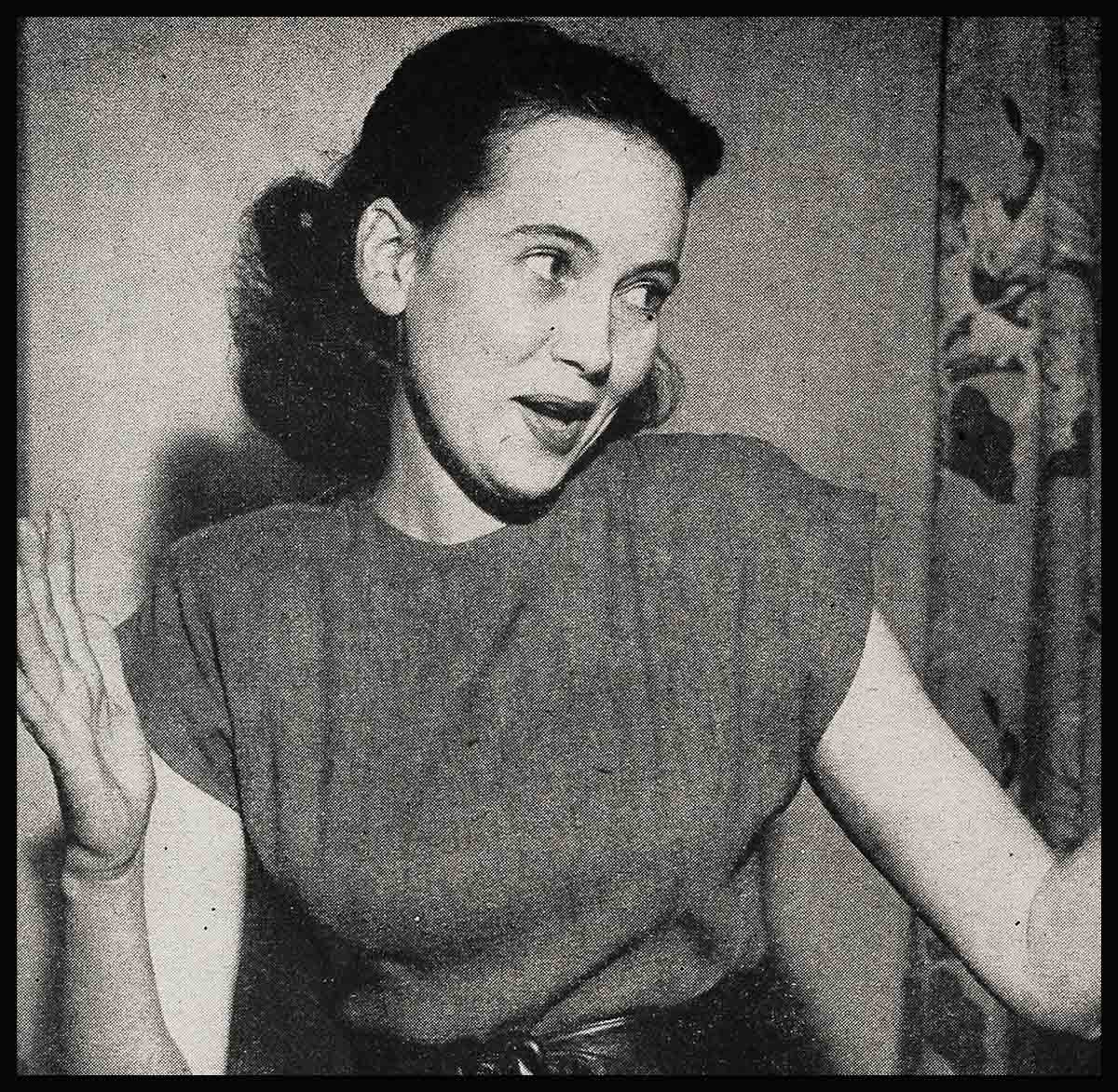
The Little Crib—Teresa Wright & Niven Busch
Mr. Sebastian, owner and proprietor of the Valley-Vue Hardware (Everything For The House and Garden) glanced out the window, and turned with a sigh to his clerk.
“Better get out the samples, Joe. Here she comes again.”
As he spoke, the door opened and in came a young woman with the smug smile and clumsy costume that are the symbols everywhere of approaching motherhood.
“Good morning, Mr. Sebastian,” she said, or rather sang.
“Good morning, Mrs. Busch.” Mr. Sebastian observed the proprieties. He would never think of calling a customer—even a famous film star like Teresa Wright—by anything but her married name. “Joe has the samples ready for you.” And he solicitously brought forth a stool.
Teresa waved it away.
“I won’t need it,” she said. “I’ve already decided the color I want. It came to me this morning while I was sandpapering the crib. Green.”
Mr. Sebastian nodded with professional approval. “What shade of green?” he inquired.
“Oh dear, I don’t know.” Teresa let her eyes wander to little strips of colored paint that Joe had carefully arranged on the counter. “This is pretty: Lettuce Green. But isn’t that a lovely shade of yellow? Maybe yellow would be better after all.”
crib of a different color . . .
She sat down on the stool. It was such a problem. If it were a girl, of course, pink would be perfect for her crib. But it would never do for a boy. And although blue would not be too bad for a girl, still, if it were a girl— A compromise color would be much safer. But would green be too masculine, or yellow too feminine? Or was it vice versa?
One hour and seventeen minutes later, Mr. Sebastian rang up a sale of $0.65 on his cash register, and Teresa Wright left with a small can of paint under her arm. White paint.
Two seconds later she was back.
“I forgot to ask,” she gasped. “Does this paint have lead in it?”
Mr. Sebastian assured her that it had not.
The color of the crib was only one of the dilemmas that Teresa faced throughout the spring and summer. In many ways, she decided, the second child offered more perplexities than the first. When she had presented Niven with a son three weeks before Christmas in 1944, it had been a relatively simple matter. She had brought the baby home, named it Niven Terence for its father, and put it to bed in a nursery that had been furnished for the purpose. There hadn’t even been, as she remembered, any conjecture as to its sex. She was interested only in having a baby, and Niven took it for granted that it would be a boy.
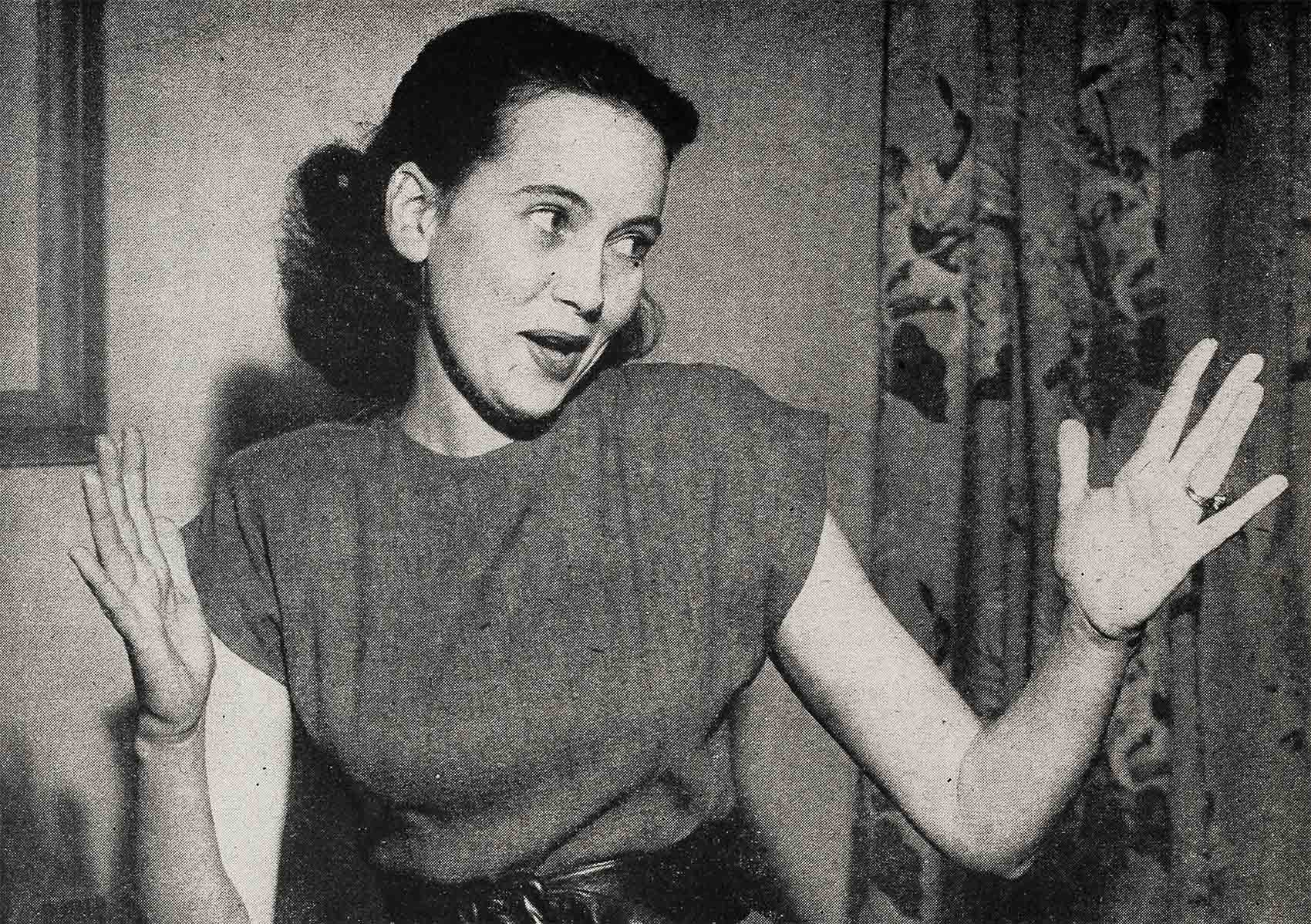
Now it was different. Teresa admitted to herself, as she would to no one else, that this time she wanted a daughter. She was not sure about Niven. With Peter and Tony, his two sons by a previous marriage, and Terry, it would seem likely that he was at last in a receptive mood for a girl But when she had told him, in February, that she was going to have a baby, he had kissed her and said something rather strange.
“If it’s a boy,” he had remarked, “we’ll have a polo team in the family.”
If any other husband had said that, it would have passed as a lame sort of joke. But with Niven Busch, who objected to his career as a novelist only on the grounds that he could not write on horseback, it was probably no joking matter. He had already frightened his wife half to death by trying to teach two-and-a-half-year-old Terry how to ride bareback. And it was quite possible that he was all too serious about a polo team.
She considered this, as she thinned out the point and prepared to apply it to the crib.
And there was the matter of Terry himself. Both Teresa and Niven recognized the psychological effect the arrival of a second child sometimes has on the firstborn. It would take considerable care and patience and understanding to prepare him for the birth of a little sister or brother, so that when he (or she) arrived, Terry would accept him (or her) without resentment or jealousy. It was a delicate undertaking, and they started on it one bedtime, when Niven was telling Terry his nightly story.
The bedtime story had long been an institution with Terry and his father. At first, Niven had spun tales of the Old West, complete with cowboys and cattle-rustlers, until Teresa had put her foot down.
“That’s no kind of story to tell a baby,” she had said firmly. “You’ll give him nightmares. He should hear something more elevating. Like Bible stories.”
So the next night Niven told him the story of David and his sling-shot.
The following night Terry asked to hear about David again.
“And his sling-shot?” his father asked.
“No. Tell me about David and his bicycle.”
And so a new cycle of latter-day legends was slowly built up around the Old Testament hero. There was “David and His Baseball Bat,” “David and His Ice-Cream Cone,” “David and His Monkey,” and many, many more.
Then one evening, Terry found his mother sitting on his bed, quietly telling him that before long she would have another baby, and that Terry would soon be a brother. When she had finished, she waited for the usual torrent of wide-eyed questions. But he had only one.
“Can Daddy come now and tell me a real story?” he asked.
Teresa left the room, deflated and depressed. She had tried so hard; chosen her words so carefully, and failed so utterly to make any impression.
In this, however, she was not entirely right. For a little while later, when Niven took his accustomed place by his son’s bed, and asked what the subject of tonight’s story would be, Terry deliberated for an unusually long time before he answered.
“Tell me about David,” he said at last, “and his monkey’s baby sister.”
And novelist Niven Busch obliged.
The baby was due in October, and as the hot summer wore on and finally out, the Busch homestead. in Encino echoed with the sound of hammers and saws, as additions were added and porches glassed in. Teresa kept working on the crib. In July, she read somewhere that Samuel Goldwyn had finished The Bishop’s Wife, the picture she was to have made, and perhaps she felt a little pang of regret. Or maybe it was the baby kicking.
the time is now . . .
By September, she had the crib almost finished, ready for its final coat. It was, as a matter of fact, while she was mixing the last batch of paint that she decided somebody’s timing was off. A hurried trip to the Good Samaritan Hospital confirmed her suspicion. Mary Kelly Busch was born on September 12, a full month before she was expected.
Mary Kelly Wright was the name of Teresa’s grandmother, and perhaps her warmest admirer. When Muriel, as she was called then, decided she wanted to go on the stage, it was Grandmother Wright who supported and encouraged her. There were times, as a matter of fact, when she gave her almost too much encouragement. Like that night in Provincetown, when Teresa was playing a walk-on, and Grandmother Wright started applauding when she made her entrance and kept on clapping until she left the stage. Or that other awful time, during another performance, when Teresa, in the midst of a dramatic scene, heard the familiar old voice suddenly boom out: “That’s my granddaughter up there.”
So when Teresa found herself on Broadway, as the ingenue in Life With Father, she delayed inviting Grandmother Wright to see the play. She was afraid of what might happen, and thought it would be better to wait until the excitement of the opening subsided and the play settled down to a long run. She’d have grandmother come in then some Saturday morning, and they’d have lunch together, and she could see the matinée. But before that happened Grandmother Wright died, and Teresa never entirely forgave herself.
She thought of these things as she lay in her hospital bed, watching the nurse exhibit the tiny parcel of blankets and pink skin that seemed to be her daughter. Then it was time for her to “rest.” When she opened her eyes again her husband was beside her.
“She’s a beautiful baby,” he said. “How do you feel?”
She managed a smile. There was a pause.
“You know,” he added thoughtfully, “there’s no reason in the world why a girl couldn’t play polo. If she were taught to ride properly, that is.”
A few days later Teresa and Mary came home. While she was in the hospital, Teresa had covered reams of paper with diagrams showing Niven exactly how the baby’s furniture was to be arranged in the nursery, and even careful catalogues describing what articles of clothing were to be placed in each bureau drawer. But when Niven carried her upstairs to show her the room, she let out a shrill cry.
“The crib! What’s happened to it?”
Even from the doorway she could see the brush-marks, the black fingerprints, the coagulated rivulets of dried paint running down the surface like varicose veins.
“I thought you’d be surprised,” her husband said. “We finished it for you while you were in the hospital. Terry helped.”
And suddenly, Teresa Wright found that she was laughing. It was the laughter of relief and joy and wonder.
It was all over. And it was just beginning.
THE END
—BY HOWARD SHARPE
It is a quote. MODERN SCREEN MAGAZINE JANUARY 1948


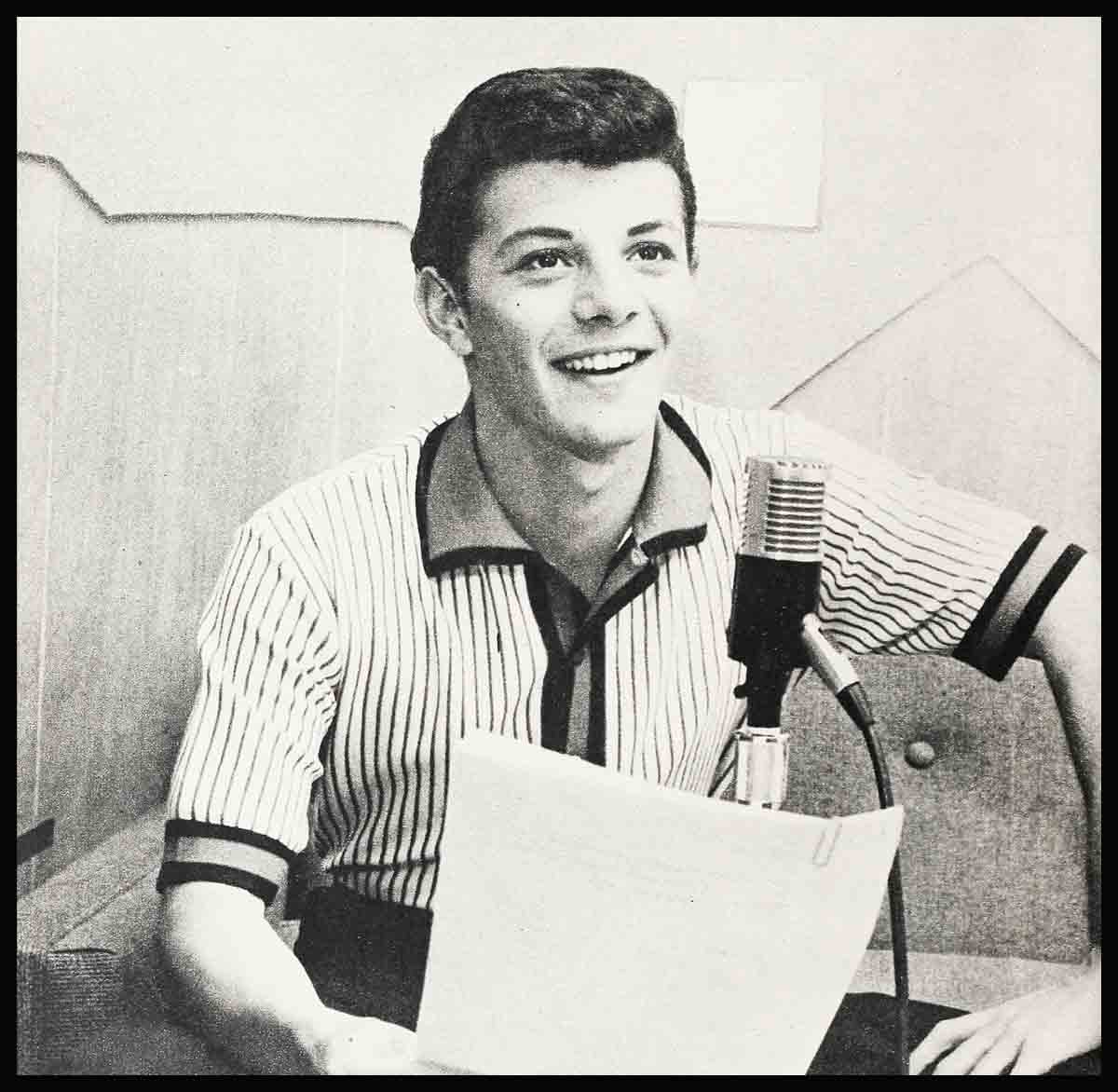
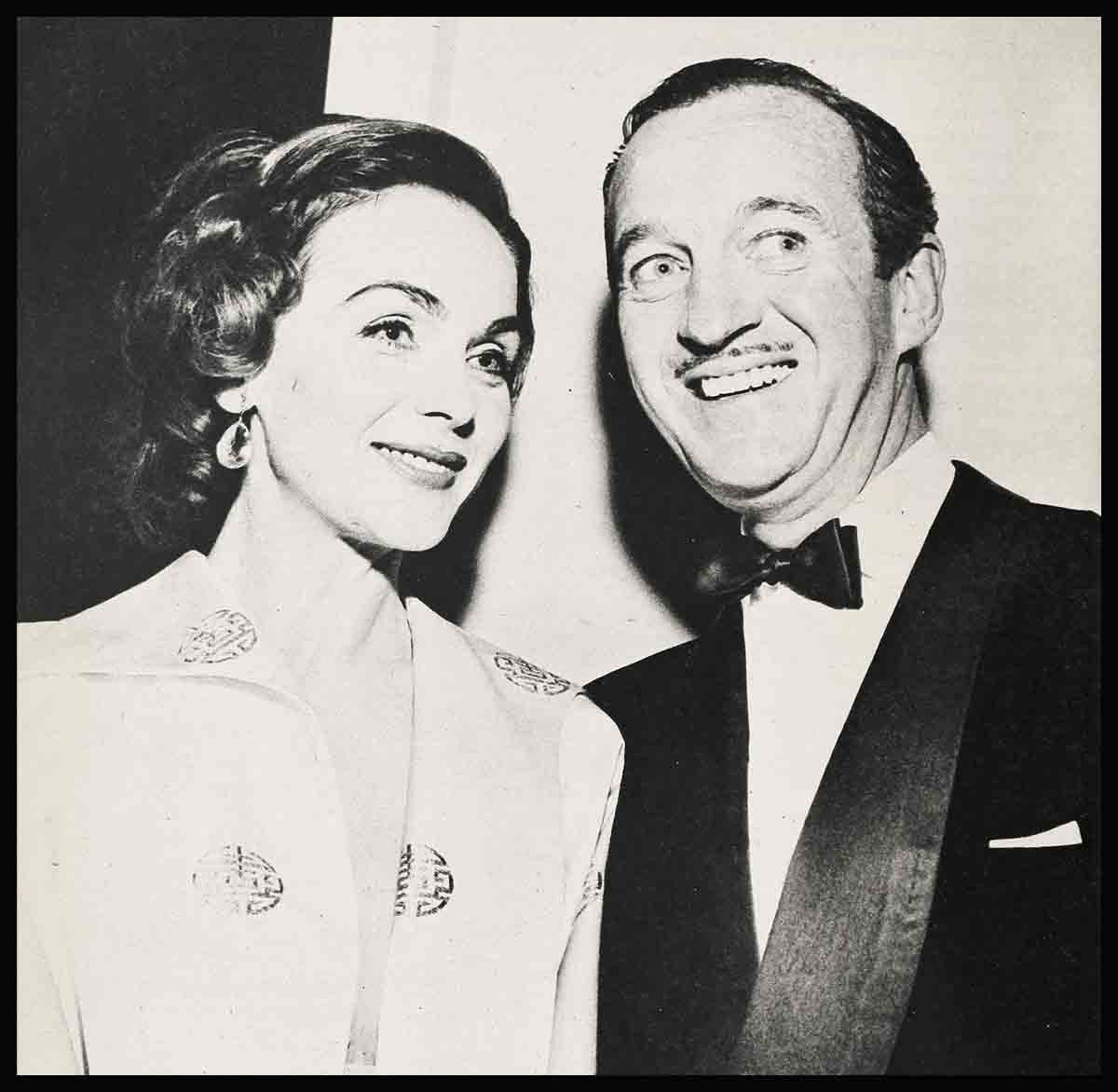
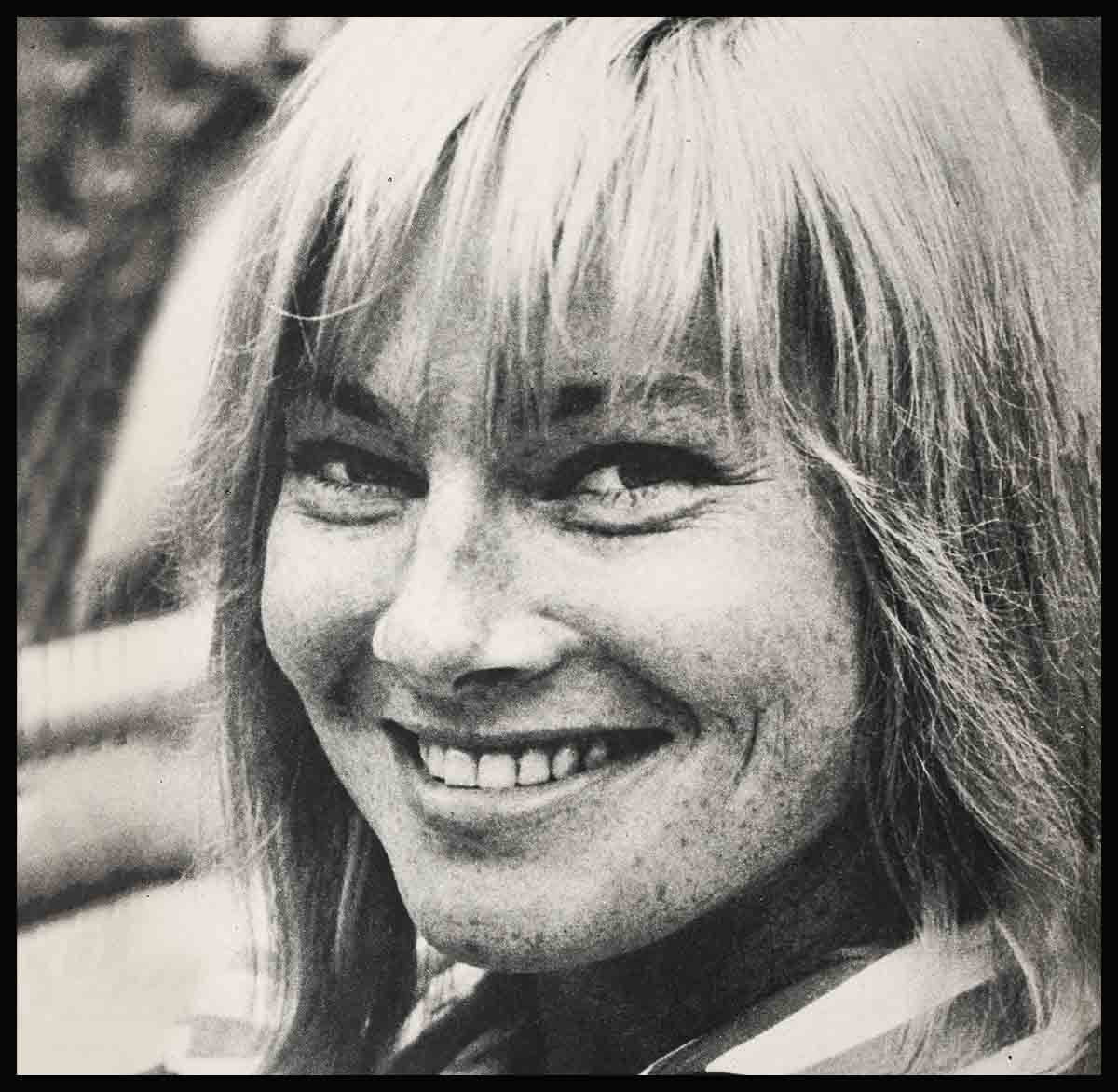
No Comments